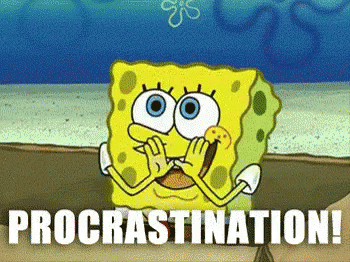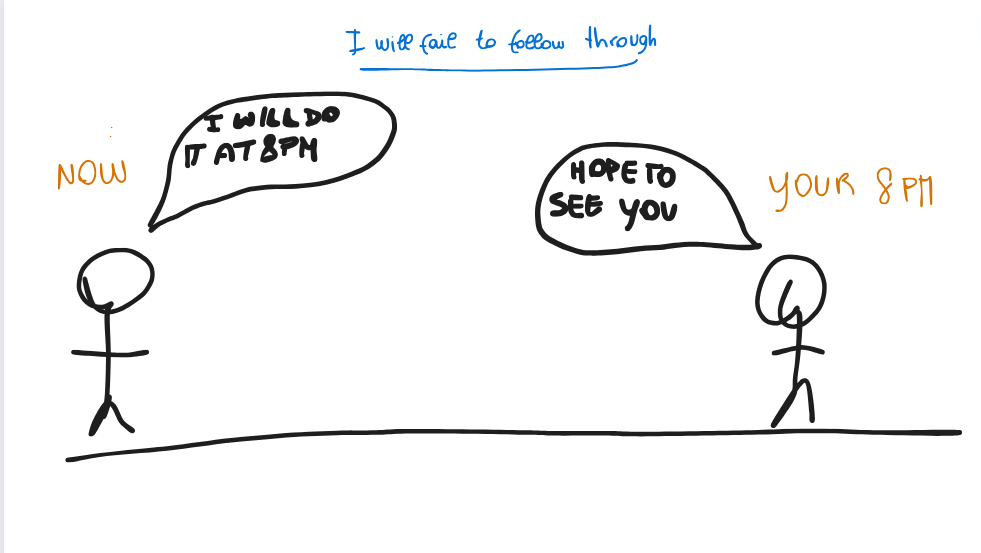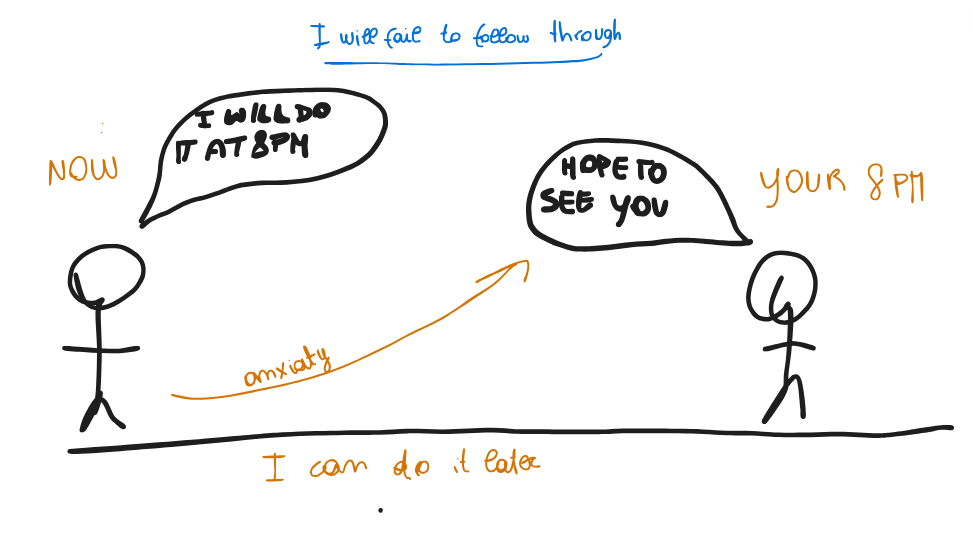- Verve Newsletter
- Posts
- PROCRASTINATION
PROCRASTINATION
Hello Enthusiastic of Knowledge,
today I want to answer one of the most asked questions I receive from your emails: how to win on procrastination

Almost all of us experience moments of procrastination, or some areas of our lives where we find ourselves procrastinating for certain periods.
Today we will explore the reasons why we often put things off, and how we can break this cycle to build confidence in ourselves.
You and your future self
Procrastination comes in many forms, but it's often fueled by the fear of not being able to complete what we've set out to do.
When we tell ourselves that we'll do something at a certain time, we're making a promise to our future selves. However, we often doubt our ability to keep this promise, fearing that we won't be able to follow through.
Ask yourself: When you say you'll do this thing, how sure are you that you will show up for your future self?
In fact, when we find ourselves in a cycle of procrastination, we're not truly confident in our ability to accomplish what we've set out to do.
We fear that we'll fail to follow through, and it's this fear that breeds procrastination.

The insecurity of not knowing whether you'll show up for your future self causes anxiety.
When you commit to doing something, initially, you might feel confident and motivated. However, over time, doubts and anxieties may arise. You might start telling yourself: "I need to do this, it's important," but at the same time, you feel the anxiety growing as you think: "I'm not sure if I can do it, I don't know if I want to do it now, but I know it's important."
With these thoughts, the level of anxiety rises. These doubts may lead you to convince yourself that perhaps it's not necessary to do it at that moment, maybe thinking: "Maybe it's not necessary to do it now, I could do it later."

"I can do it later" arises because you feel anxious.
This anxiety can lead us to postpone action, disrespecting ourselves and our promise.
Added to this are past failures in keeping our promises, which further fuel this fear and self-distrust.
When we finally come to the moment of execution, we are faced with two options:
- to carry out the action
- to fail to do so, thus feeding the cycle of procrastination.
But how can we break this harmful cycle?
How to Break the Cycle
To break this cycle, the first step is to start building positive references to boost our self-esteem and confidence in our ability to keep the promises we make to ourselves.
We need to make promises to our future selves that we are certain we can keep, creating positive memories to support us.
If for any reason we fail to keep our promise, it's essential to acknowledge our failure and apologize to ourselves for not honoring the commitment we made. While it may seem unusual, saying "I'm sorry" to ourselves is important. This act of self-recognition helps us take our actions seriously and understand the importance of honoring our promises.
Furthermore, we can use fear as a consequence of our actions. If we don't keep the promise we made to ourselves, we must face the reality of our fear: the fear of not being able to achieve what we set out to do. In practice, if we don't show up to do what we promised, we lose the opportunity to do it at least until the end of the day.
This process helps us understand that the fear of not being able to accomplish our actions becomes a reality if we don't act in line with our promises. It's an effective way to motivate us to honor our commitments and keep our word.
To interrupt this cycle of procrastination, it's crucial to learn to respect ourselves and take seriously the process of building credibility and trust in our personal promises. Understanding that this is a crucial step for our well-being and personal growth is fundamental.
If we don't stop this harmful cycle, we may end up procrastinating for years, reinforcing negative behavior and further damaging our self-esteem. It's important to face this challenge with determination and commitment to break the cycle and start building a more positive relationship with ourselves.
For you, how sure are you that you will show up for your future self? And how can you bring this number to 100%?
I hope you found inspiration in this newsletter.
Have a great week!
Isa